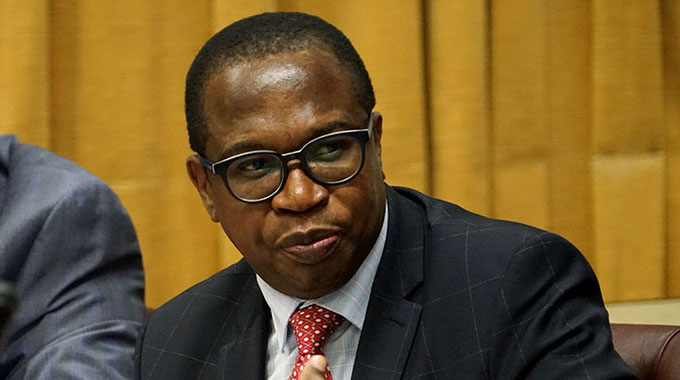EDITORIAL COMMENT: Zupco, council need to spruce up service

A lot has been done to bring order to public transport with the resuscitation of Zupco more than two years ago and especially since the determined efforts following the imposition of the lockdown early last year to control Covid-19 infections, but the killing of a tout at a long-distance bus rank this week highlights just how much more needs to be done.
The dramatic expansion of the Zupco fleet through a major opening of the franchise arrangements, coupled with the banning, with various degrees of enforcement, of kombis that were not under Zupco control brought a lot of order to the bus terminuses in Harare and cleared many streets on the Kopje side of the city centre that had become parking areas and ranks for kombi services.
Since drivers of Zupco-franchised buses and kombis no longer use touts, and refuse to pay touts or allow them to load passengers, with the refusal to pay them being the main reason why they have moved away, the terminuses are far better ordered.
The touts have not been totally eliminated, because there is still some custom on routes that Zupco does not serve or serves very badly and pirate kombis race in to fill the gap, but passengers are largely left alone in terminuses.
You still get money dealers hanging around, since most buses do not accept tap cards and passengers need instant cash, and there are those in a hurry who have yet to buy their card or have run out of money in the card and accept the offer of a tout with a card who charges a premium for you to use that card.
But generally passengers are able to organise themselves in the queues at terminuses.
The long-distance bus ranks are less well organised, since the bus companies outside the Zupco system are licensed on these routes and so you get touts.
Some perform a service, helping passengers get their luggage or cargo into the luggage bays on intercity buses, and the touts, as we saw in this week’s fatal dispute, still battle to get customers onto buses.
You also get touts on the mushikashika ranks, which generally serve routes ignored by Zupco, and load the small cars for the old standard price of a single fare effectively running a protection racket at the ranks.
The touts are not directly employed by the bus companies or pirates, and managers and drivers are correct when they say they do not employ them, but they are certainly tolerated and used.
The long-distance bus companies could eliminate them fairly easily by hiring proper loaders at their ranks, people who would work under the control of the conductors or drivers and follow agreed rules.
Police would need to be deployed at official ranks, at least at first, to keep the freelancers away.
One of the companies whose touts were involved in the fatal fight this week in Fifth Street, CAG, should know better. That company, which runs a large fleet of modern buses, has part of its fleet under contract to Zupco and loads passengers for these less than 100m away in the main Simon Vengai Muzenda Street bus terminus without touts.
So it should be able to combine with other companies to approach the authorities to get proper order at the long-distance ranks.
More importantly the terminuses and associated ranks need to be upgraded with someone definitely in charge and taking responsibility for maintaining order.
In the old days Zupco ran terminuses and had inspectors manning them. This needs to be reintroduced. The drivers, with occasional police patrols, have done a lot, but a far more formal system is needed.
The large city terminus at Simon Vengai Muzenda Street and the smaller inter-terminus across Fifth Street, along with the taxi ranks in both streets and the surrounding area need to come under a centralised control.
Zupco, the intercity companies, Harare City Council, the owners of Road Port and the police need to combine to form an effective control authority for the whole area.
Similar controls need to be established for the three smaller terminuses, and their surrounding streets, in the west end of the city centre. Surrounding streets need to be included because those terminuses are on the small side so while loading is largely in the terminuses, passengers normally have to disembark outside.
At the same time proper signposting is needed within terminuses and shelters need to be repaired and maintained, even painted. Signposting must include route information, since many passengers do not want to go all the way to a suburban terminus, and as timetabling comes back these timetables need to be displayed.
At the same time a common platform is needed for booking and paying long-distance electronic fares. Zupco has now introduced its own system, and several companies have theirs when it comes to intercity routes, but integrating these would be useful or even better having a common system.
Zupco acting chief executive Mr Evaristo Madangwa talked about the tap cards this week, largely used for urban routes, and seemed to think that it was passengers who were reluctant to use these.
If he visited terminuses more often he would find that only a minority of Zupco-branded buses have card readers, or use the cards. Passengers are far more enthusiastic largely because the most common fare on the long Zupco-branded buses in Harare Metropolitan, thanks to the inherited colonial town planning, is $45 and if Mr Madangwa knows of a source of $5 notes for change he should speak up.
Few passengers travel with a close friend or relative to share fares, so most pay $50 and it is doubtful if either Zupco or the bus owners see the difference.
His little booths at terminuses do, as he says, sell and recharge cards and the issuing bank has branches that can help out.
Sometimes there are queues, and this might mean more staff and swipe machines and EcoCash numbers if tap cards become more common. But he could get the tap cards universal with a simple directive to all bus owners under his franchise to have the readers, to use them and after a short transition to then ban cash fares. He has the authority.
His comments also suggest that both himself and his senior staff should at least stop by terminuses more often.
While it would be ideal if they all used Zupco buses, at least stopping for 30 minutes a day at a terminus and having a look around would help them understand what their passengers face.
Many improvements would be cheap and easy and Zupco and the city council could work out how to implement them.











Comments